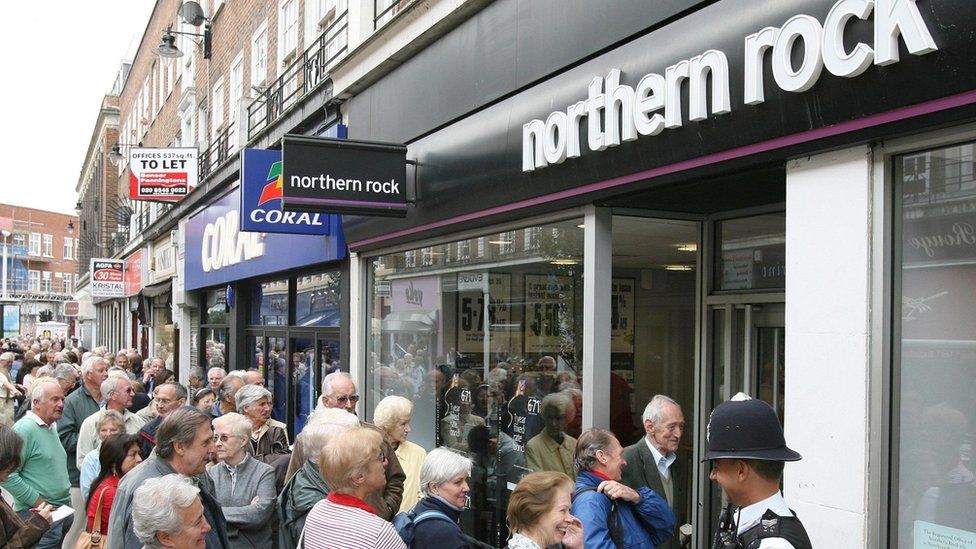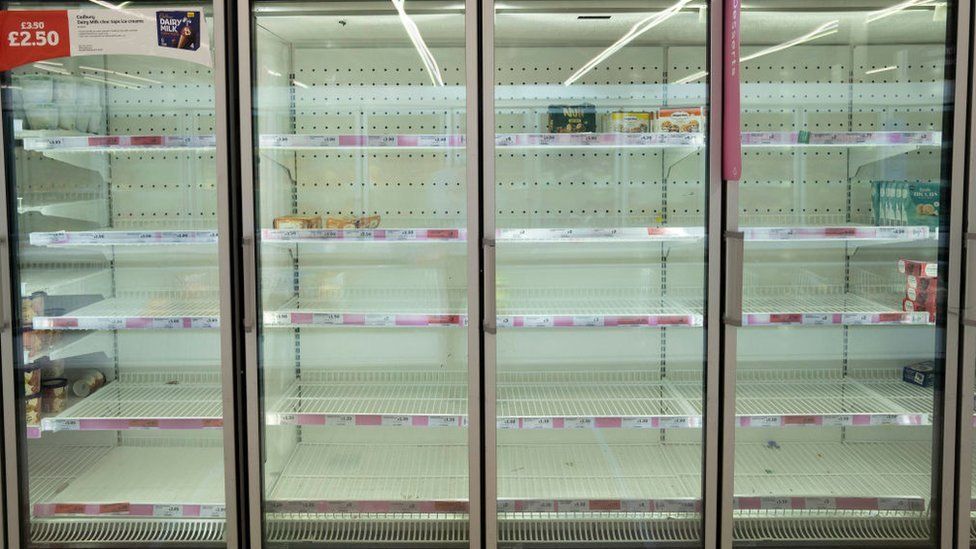
There is an art and some science to trying to calm a mass consumer panic.
It was the former Bank of England governor, Mervyn King, who in the aftermath of the 2007 bank run on Northern Rock said it was entirely rational to join a queue to extract money from the bank, once the run had started.
A year later, the Bank of England had learned some lessons about mass consumer psychology and had arranged for spotters on key High Streets to be able to identify if similar scenes were developing, following the distress of Bradford & Bingley in similar circumstances.
The situations of overextended former building societies have their own special dynamics, but there are some valuable lessons on how to stop self-fulfilling mass panics. Large swathes of the economy have become ever more sensitive to consumer behaviour surges such as this.
The supplies essential to our lives - from food, to petrol, to energy, to banknotes - arrive in a way which in normal times can be described as miracles of modern-day capitalism.
Just enough of all these essentials is produced in just the right places, to be delivered to the correct freight trucks and vans, to get where they are needed at exactly the right time.
The just-in-time principle avoids the need for too much stock and warehousing. It minimises the prices paid by consumers while maximising their choice.
But it makes the system less resilient. If consumers act in an unpredictable way, fears about availability can become self-fulfilling.
Euro crisis
During the eurozone crisis, a perception that European authorities were holding back supplies of bank notes from the Greek government, helped compound runs on cash machines. Those runs became self-fulfilling: it was rational for those in need of hard cash from their bank accounts to get it before it ran out.

By the time similar problems were seen in Cyprus, the same eurozone authorities were privately confirming the filmed arrival of a freight jet full of euro banknotes to replenish Nicosia's cash machines. It helped to calm the situation.
Two years ago, as the supermarket industry faced the possibility of a no-deal Brexit, one of its top bosses told me they had studied their own data around supply disruptions very carefully.
The weather-related turmoil dubbed the "Beast from the East", in particular, had shown that even the perception of a serious risk to supplies would lead to the "great British consumer stripping our shelves faster than a plague of locusts".
Such concerns have contributed to the government repeatedly delaying the imposition of import controls over European trade after Brexit.
European food imports are still being waved in and will mostly continue to be until the middle of next year. But at the beginning of the pandemic, there was a run on toilet roll, which seemed to emanate from Australian TV pictures of stockpiling going viral on English language social media.
As it happens, the food supply chain proved to be incredibly resilient during the upheavals of the pandemic. The supermarkets and their suppliers coped with massive change in shopping habits, an increase in online deliveries, and then a significant increase in demand as spending switched from eating out to eating in.
Perfect storm
But in recent weeks, there have been visible supply problems for certain lines on shop shelves. The "perfect storm" of backed-up sea freight, piled-up containers and a shortage of hauliers is having consequences and will face challenges in the busy weeks ahead of Christmas.

A series of just-in-time systems that depend on each other are beginning to be severely tested. As it happens, the petrol distribution chain had some of the very best contingencies to deal with this, under what is known as the Downstream Oil Protocol. Competition considerations have been suspended, operators are co-operating to refill the pumps.
And yet protestations from government and the industry that there is no shortage of fuel have not stopped the run on the pumps. There seems to be a lack of trust, perhaps a hangover from the febrile political atmosphere of the last half-decade.
In some quarters, the media is being blamed. If anything, most in the media held back from such reporting and repeatedly clarified there was no general shortage. In any event, these scenes were being widely communicated to most of the population through social media.
Just-in-time systems require consumers to have trust in credible authorities that are able to communicate openly, authoritatively, persuasively and clearly. Mass consumer behaviour is now more like a real-time financial market.
People don't themselves have to be particularly worried about their own supplies to start to think they should buy more than normal. All that is required is a perception that there are enough other people out there, worried enough to act, for it to be rational to at least consider if your personal supplies are sufficient.
Just in case?
Italian Prime Minister Mario Draghi, in his previous life as president of the European Central Bank, once managed to hose down a seemingly out-of-control crisis with a credible promise to do "whatever it takes" to protect the single currency.

In this case, that was not the message. Up until Friday, the government's message was that hauliers would have to get used to fewer foreign hauliers and that this was a good thing for higher British wages. It was not a "whatever it takes" message about the current crunch in the haulage industry.
This country has never been more dependent on these delicate supply chains. They are, in general, under severe pressure from the switching-back-on of the economy after lockdown. In some sectors, this is exacerbated by supply crunches and personnel shortages associated with EU exit.
The bank run in 2007 stopped only when the government stepped in with overwhelming force, guaranteeing savings.
These just-in-time systems only work if consumers are confident in their functioning and trust people in charge. That is a lesson that might be tested again in the next few months.
After that, many in big business are pondering if, in current circumstances, the way supplies get to market needs to be more about "just in case" than "just in time". If that transpires, then consumers will end up fitting the bill with even more price rises.
"control" - Google News
September 28, 2021 at 01:48AM
https://ift.tt/3m4gEyz
How to control a consumer panic - BBC News
"control" - Google News
https://ift.tt/3bY2j0m
https://ift.tt/2KQD83I
Bagikan Berita Ini














0 Response to "How to control a consumer panic - BBC News"
Post a Comment